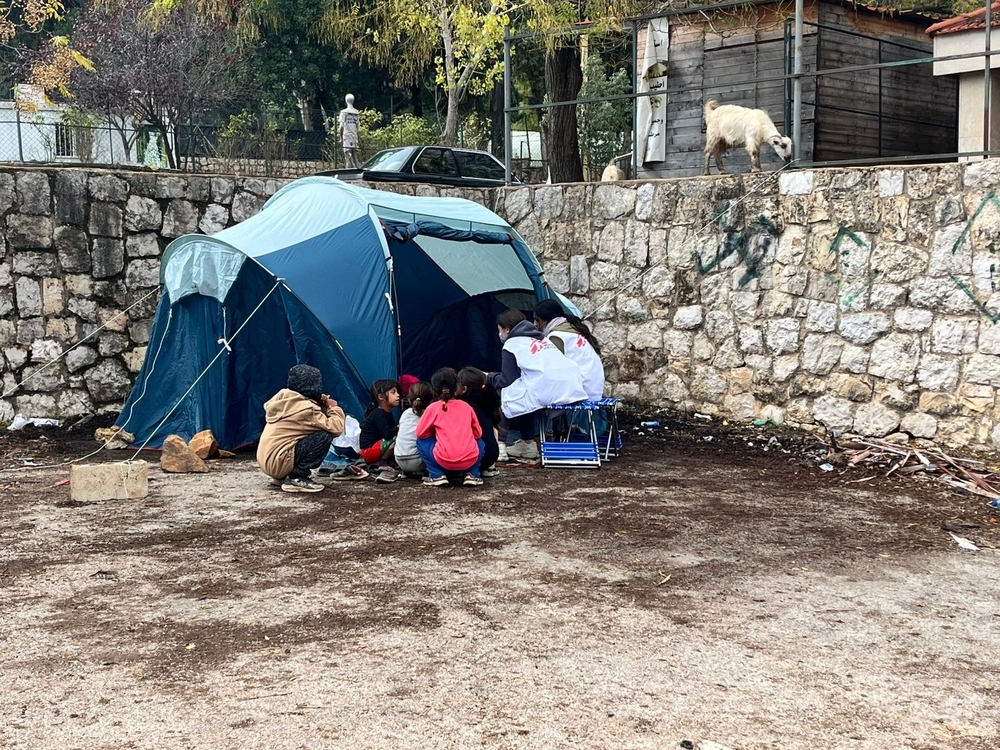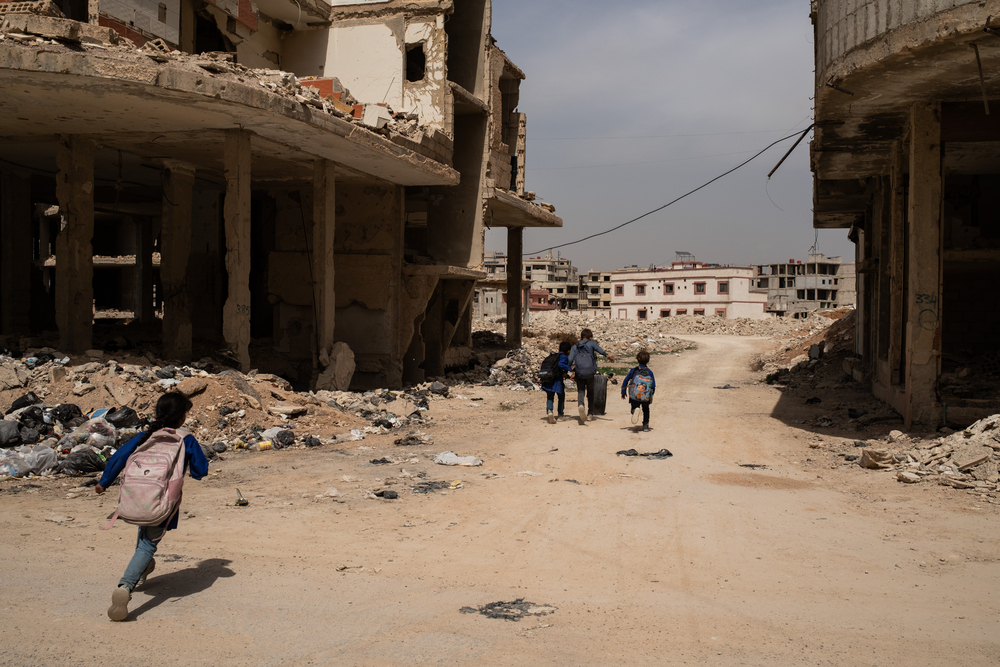Wars are costly and often devastating to the local populace. The road to recovery can also be long and difficult. This is even more true in Lebanon and Syria, with the US engaged in international efforts to preclude any reconstruction funds being sent by other nations.
Presented as an “undeclared veto,” the Trump Administration has contacted multiple Gulf Arab countries to warn them they are not allowed to deliver any of the promised reconstruction aid to Lebanon or Syria “until Israel’s objectives are met.”
Israel invaded Lebanon in September and carried out a war that ended November 26 with a ceasefire. Since then Israel has continued to attack Lebanon almost daily, and has refused to withdraw troops from military outposts they set up inside Lebanon.

An image of displaced in southern Lebanon during the ceasefire ©MSF
The intense damage in Lebanon includes villages of homes burnt by occupying Israeli forces, and much of the agriculture infrastructure in southern Lebanon destroyed. Lebanese are just beginning to try to repair the farmland for planting, but there too they’ve come under Israeli attack.
Syria’s situation is somewhat different, coming off a protracted civil war which left the country in ruins and the Islamist Hayat Tahrir al-Sham (HTS) in power. In this case, Israel carried out attacks intermittently throughout the war, but it was only after the war ended that they invaded outright, and have occupied parts of southern Syria.
There is no sign they intend to slow these attacks or withdraw from newly occupied parts of Syria. The UN Security Council is meant to have an emergency meeting Thursday to discuss the matter, though action seems unlikely. If anything, Israeli forces continue to advance ever deeper into Syria.

Children in post-war Syria, in the Daraya suburb of Damascus. ©MSF
The US decision to condition Saudi Arabia, Qatar and others being “allowed” to give aid to those countries on Israel’s objectives is doubly challenging because Israel never makes clear what those objectives even are, and Israeli hostility to both nations seems to be an ongoing matter of policy irrespective of the conditions on the ground.
The Trump Administration placed other conditions as well. Beyond Israeli acquiescence, which will be almost impossible to obtain, they want the Iran nuclear deal to be resolved and the China tariff crisis. Both of those are plainly unrelated to Lebanon or Syria, and completely out of the hands of their respective governments. This suggests the goal is to just prevent reconstruction altogether.
It’s not clear in practice whether the US can really forbid a nation like Qatar from offering reconstruction aid to a war-torn nation. The administration seems to be assuming it can, however, and so far it’s prevented aid from being released.
Some sources are being quoted as the administration believing it can resolve all Israeli-Arab disagreements and the other problems too through this strategy. It is further suggested that the administration intends, no matter what, to hold out aid on Lebanon through at least 2026, in hopes of swaying the election.
Lebanon’s parliament includes a number of Shi’ites, and the US appears to hope that if they keep Lebanon in a state of perpetual post-war misery, the voters will punish the Shi’ite candidates since Israel invaded to attack Hezbollah, a Shi’ite organization.
Whether this strategy will be successful remains to be seen, but the US doesn’t have a great track record with these kind of gambles, and trying to impose an election result on Lebanon like this could easily backfire, especially when the reason post-war reconstruction isn’t happening is because Trump is forbidding it. If anything, it could prove a boost to parties looking to resist the US imposition and chart a different course.


